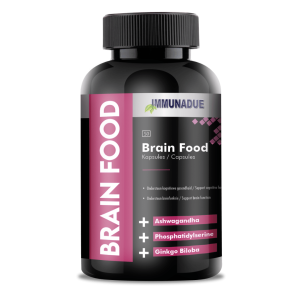- Class of Mineral:
-
- Type of mineral (e.g. metallic etc): Metallic
- Alkalizing or acidifying? Acidifying.
- How the Body Utilizes the mineral:
-
- Copper is an essential trace mineral that plays a crucial role in the formation of red blood cells, maintenance of nerve cells and the immune system, and the production of energy in the body. The body needs copper to make enzymes called copper-dependent enzymes.
- Copper is an essential trace mineral that plays a crucial role in the formation of collagen and elastin, which are essential components of connective tissue, skin, and blood vessels. Copper also helps in the production of lysyl oxidase, an enzyme that cross-links collagen and elastin fibers, providing strength and elasticity to the tissues.
- Mineral Supplement Dosage:
-
- RDA: The recommended dietary allowance (RDA) for copper is 900 mcg for adults.
- Typical Dietary Intake: The average daily intake of copper in the United States is about 1,000-1,300 mcg for men and 890-1,080 mcg for women.
- Tolerable Upper Intake Level (UL): The tolerable upper intake level (UL) for copper is 10,000 mcg per day for adults.
- Symptoms of a shortage of the mineral:
Copper deficiency is rare in healthy individuals, but it may occur in people with certain medical conditions or those who undergo total parenteral nutrition. Symptoms of copper deficiency include:
-
- Reduced skin elasticity – resulting in wrinkles, sagging skin, and poor wound healing.
- Weaker cartilage and increased risk of joint pain and arthritis.
- Weakened blood vessels, which can contribute to aneurysms and other vascular issues.
- Reduced melanin production (including grey hair)
- Anaemia
- Fatigue
- Poor growth
- Osteoporosis
- Problems with the immune system
- Symptoms of too much of the mineral:
Excess copper intake is rare, but it can occur with long-term intake of high doses of copper supplements. Symptoms of copper toxicity include:
-
- Nausea
- Vomiting
- Stomach pain
- Diarrhoea
- Headaches
- Insomnia
- Anxiety
- Confusion
- Mineral supplement Forms:
-
- Copper sulphate (most absorbable)
- Copper gluconate
- Copper amino acid chelate.
- Various food sources for the mineral:
-
- Organ meats (liver, kidney)
- Shellfish (oysters, crab, lobster)
- Nuts and seeds (cashews, sunflower seeds, sesame seeds)
- Legumes (lentils, chickpeas, soybeans)
- Whole grains (quinoa, brown rice, oats)
- Dried fruits (raisins, prunes, apricots)
- Dark chocolate
- How to take the mineral:
-
- Meal Timing: Copper supplements can be taken with meals, but they are best absorbed when taken on an empty stomach.
- Time of Day: Copper supplements can be taken at any time of day, but it is generally recommended to take them in the morning or evening.
- Other: Copper supplements should be taken with caution and under the guidance of a healthcare professional, especially if you have a history of kidney disease or are taking other medications.
- Interactions:
Positive Interactions
-
- Vitamins and minerals: Copper works synergistically with vitamin C, zinc, and iron.
- Medication: Copper may interact with certain medications, such as penicillamine, a drug used to treat rheumatoid arthritis. It is essential to consult with a healthcare professional before taking copper supplements if you are on any medications.
- Other: Copper may also work synergistically with other trace minerals, such as manganese and molybdenum.
Negative Interactions
-
- Vitamins and minerals: High intakes of zinc or iron may interfere with copper absorption and increase the risk of copper deficiency.
- Medication: Copper supplements may interact with certain medications, such as antibiotics and antacids. It is essential to consult with a healthcare professional before taking copper supplements if you are on any medications.
- Other: Excessive intake of copper may interfere with the absorption of other minerals, such as zinc and iron.
- Contraindications and Risks:
-
- Copper supplements should be avoided by people with Wilson’s disease, a rare genetic disorder that causes copper to accumulate in the liver, brain, and other organs.
- Pregnant and breastfeeding women should consult with a healthcare professional before taking copper supplements.
- People with kidney disease or a history of kidney stones should consult with a healthcare professional before taking copper supplements.
- People taking medications for diabetes or heart disease should consult with a healthcare professional before taking copper supplements.






Reviews
There are no reviews yet.